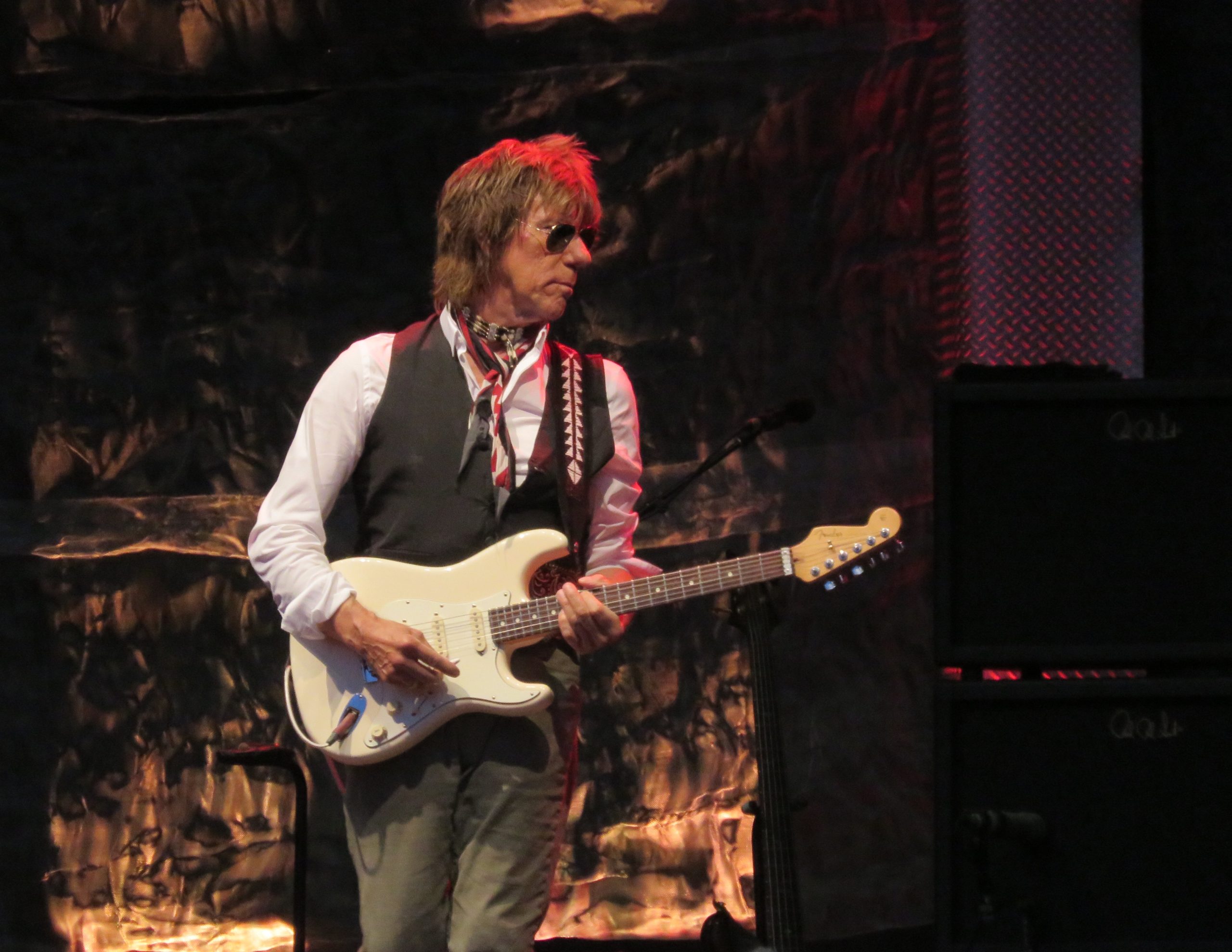From riffing alongside Jimmy Page to electro-rock, Bon Jovi and more, Beck's fingerprints were everywhere

Jeff Beck. Photo: Photo Shannon Kringen from USA, CC BY-SA 2.0
Just how influential and pathbreaking was guitar virtuoso Jeff Beck in the world of rock and roll? You may need to look no further than “Beck’s Bolero,” which released in 1967 as a B-side to the single “Hi Ho Silver Lining.” The difference with “Beck’s Bolero” was that it featured Jimmy Page and John Paul Jones from Led Zeppelin, drummer Keith Moon from The Who and pianist Nicky Hopkins (who went on to work with the Rolling Stones, The Kinks and others).
Beck may have started out as a contemporary to the likes of Eric Clapton and Page, but everyone’s trajectory to rock stardom took truly different paths. In the case of Beck, he started the Jeff Beck Group in 1967, where he turned to his long-standing love for the blues, joined by the likes of Rod Stewart, Hopkins on keys, bassist Ronnie Wood and drummer Aynsley Dunbar.
While “Beck’s Bolero” was added to Beck’s debut album Truth in 1968, there were also renditions of songs like “I Ain’t Superstitious,” previously popularized by blues greats like Willie Dixon and Howlin’ Wolf. The way that Beck made his guitar talk with the wah-wah effect on “I Ain’t Superstitious” arguably changed the way we thought about what the guitar could do. Sure, there was plenty of experiments going on in the world of psychedelic rock, but Beck was truly among those who distilled a unique guitar language – a lexicon he would keep adding to over the decades to come.
From the blues, The Jeff Beck Group leaned towards a funkier sound a few albums down, but their founder was still a hungry explorer. With Stevie Wonder, Beck created the demo of the funk masterpiece “Superstition,” which released in 1972. A separate version released with Beck, Bogert and Appice in 1973, but the Stevie Wonder version undoubtedly had the fingerprints of Beck’s rhythmic sensibilities (he played the opening drum beat).
From thereon, from Motown to David Bowie’s experiments and jazz-rock, everything was fair game for Beck. With his mind on not just being inspired by the traditions of these artists but also add his own voice to it, Beck was slowly cementing his legacy as a shapeshifting, versatile guitarist and composer. Even if he was touring in support of the Mahavishnu Orchestra in the Seventies, the Eighties saw him pioneer instrumental rock just when the world was recognizing the rise of guitar virtuosos like Steve Vai, Joe Satriani and Eric Johnson, among others.
The world of virtuoso guitar certainly appealed to Beck, but like everything he’d accomplished so far, it wasn’t the only thing he was going to be known for in the coming years. From ripping solos for Bon Jovi (“Blaze of Glory”) to creating an electro-rock album to working with reggae/ska act Toots and the Maytals and pop icons like Seal and Tina Turner, Beck’s imprint on the music world remains undeniable and he did without perhaps looking back over his shoulder more than a few times, carrying forward a sense of conviction in his playing and guitar versatility that few can match.
The Amsterdam-origin festival will take place on Mar. 21, 2026, with Benja, Rooleh and Marlie…
After the global success of ‘Bon Appétit, Your Majesty,’ the rising star is having his…
How Syd Barrett connected Greek mythology, Kenneth Grahame and music, the true modern-day Pan the…
Primary Wave will now take over Spears’ ownership share of her hit songs, including “……
This is not your granddad’s GoT — and thank god(s) for that
Eddie breaks down a powerful new Netflix documentary, Matter of Time, which combines solo concert…